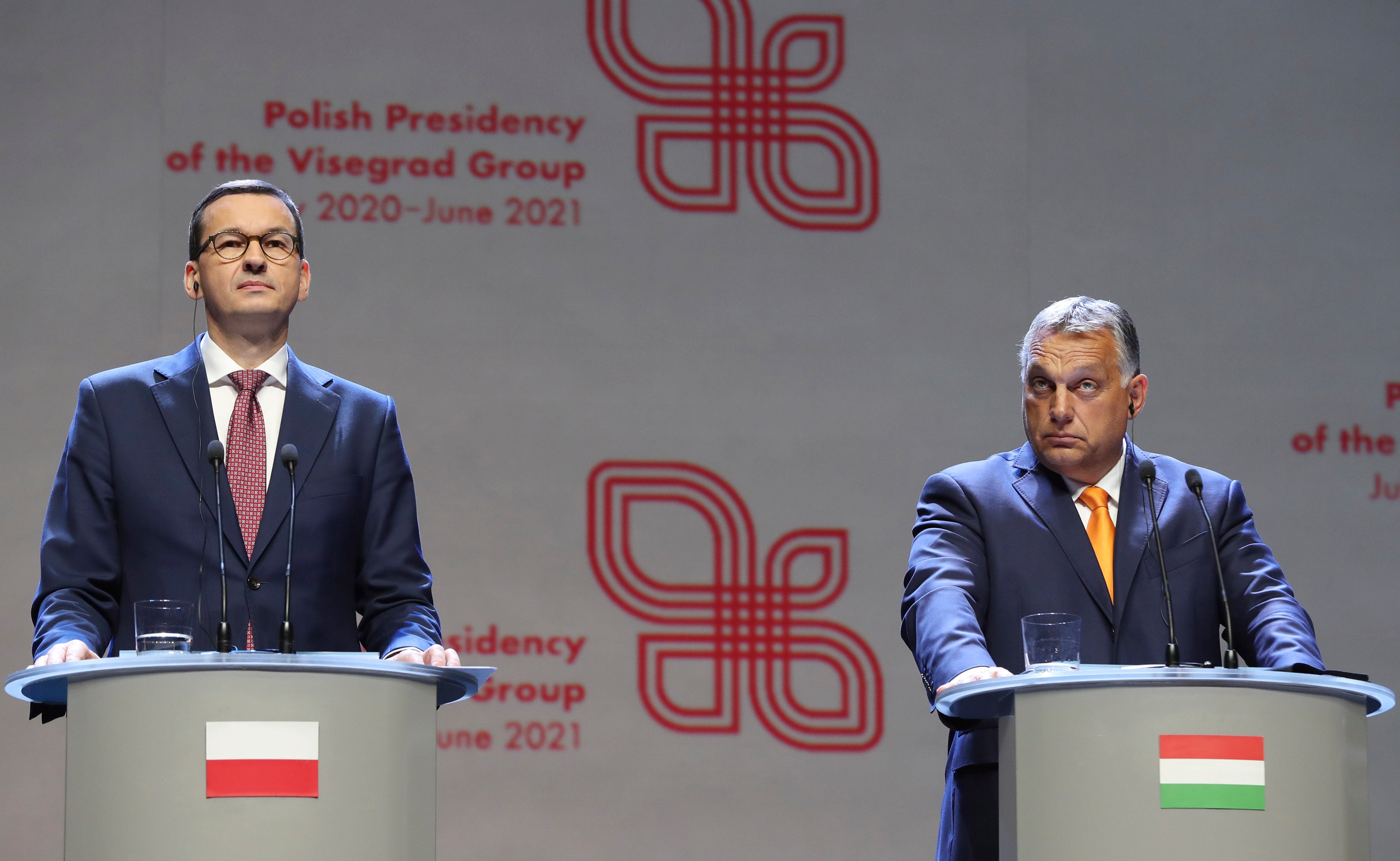EU urges Poland, Hungary to sign up to big money budget
Germany is urging member states to put divergences aside in a bid to break a stalemate on the adoption of the bloc’s €1.8 trillion budget and coronavirus recovery package blocked by Poland and Hungary

With the European Union on the verge of an embarrassing crisis, Germany on Tuesday urged all member states to put divergences aside in a bid to break a stalemate on the adoption of the bloc's €1.8 trillion ($2.1 trillion) budget and coronavirus recovery package blocked by Poland and Hungary
Speaking ahead of a video meeting of European affairs ministers, Germany’s Europe minister Michael Roth said there is no time to waste as the social and economic consequences of COVID-19 remain a top priority of the six-months German presidency of the EU Council.
Following a hard-fought agreement with the European Parliament last week, Roth said “we must now make sure that the funds reach those who need them as quickly as possible. Our citizens, in all member states, count on our support. There are no excuses for further delays."
Roth spoke after Poland and Hungary vetoed the budget for 2021-2027 and the massive coronavirus recovery plan Monday because of a new mechanism that links EU funding to the rule of law.
Amid the second wave of the pandemic, the money — which includes billions in support for Hungary and Poland — is crucial for many EU nations whose economies have been ravaged by the deadly virus and the lockdowns put in place to slow down the pace of contaminations. The new budget is meant to take effect on Jan. 1.
“I ask everyone in the EU to live up to their responsibility," Roth said. “It's not the time for vetoes, but for acting swiftly and in the spirit of solidarity. Our people would pay a very high price of a blockade."
In Warsaw and Budapest, right-wing governments are adamantly opposed to the rule of law mechanism that could cause them to lose EU money if they continue with policies seen as eroding democratic standards.
On Monday, ambassadors voted by a qualified majority - around two-thirds - in favor of the rule of law mechanism, but Poland and Hungary then blocked the procedure for the adoption of a mechanism allowing the EU to borrow money for the recovery.
The move did not come as a surprise after Hungarian Prime Minister Viktor Orban wrote a letter to German Chancellor Angela Merkel, European Commission President Ursula von der Leyen and European Council President Charles Michel saying he would veto the budget and post-pandemic relief package. The EU commission said it has yet to answer the letter, while Roth said Germany will continue to negotiate to “overcome the remaining political obstacles."
“Our objective remains to conclude this very difficult negotiations as soon as possible," he said. EU leaders are likely to discuss the the scorching topic on Thursday evening during a videoconference summit.
EU officials insisted on the new mechanism linking rule of law to funding in order to have a tool to use against the governments of Prime Minister Mateusz Morawiecki of Poland and Orban of Hungary, both of which stand accused by the EU of eroding judicial independence and media freedoms. In addition, Orban’s government faces criticism for stigmatizing non-governmental organizations promoting civil liberties and for allegedly misusing EU funds to enrich his political allies.
Bookmark popover
Removed from bookmarks